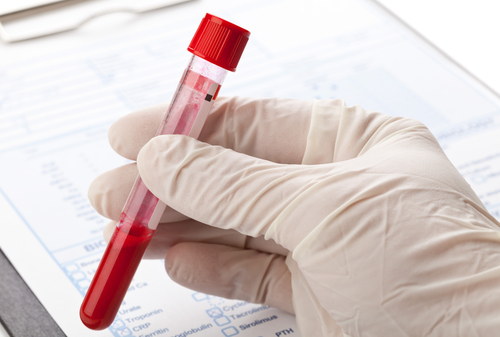 Molecular diagnostics company, Provista Diagnostics, Inc., recently announced their acceptance to present a poster at the upcoming San Antonio Breast Cancer Symposium, scheduled Tuesday, December 9 to Saturday, December 13, 2014. The poster, entitled, “Provista-001: a multi-center prospective study of protein signature used in the differentiation of benign breast lesions from invasive breast cancer in women under the age of 50 with a BI-RADS 3 or 4,” highlights the company’s commitment to develop new and better blood-based diagnostics, prognostics and monitoring tests for women’s cancers. The poster will be available for viewing during the conference’s Detection and Diagnosis Poster session.
Molecular diagnostics company, Provista Diagnostics, Inc., recently announced their acceptance to present a poster at the upcoming San Antonio Breast Cancer Symposium, scheduled Tuesday, December 9 to Saturday, December 13, 2014. The poster, entitled, “Provista-001: a multi-center prospective study of protein signature used in the differentiation of benign breast lesions from invasive breast cancer in women under the age of 50 with a BI-RADS 3 or 4,” highlights the company’s commitment to develop new and better blood-based diagnostics, prognostics and monitoring tests for women’s cancers. The poster will be available for viewing during the conference’s Detection and Diagnosis Poster session.
The American Cancer Society predicts that by the end of 2014, almost 233,000 women will be diagnosed with breast cancer. Every year, 40,000 women die of beast cancer – most of which could have had a better outcome if they had received an earlier, accurate diagnosis and immediately started appropriate treatment.
“We are very excited to be accepted to present our late-breaking data at the 2014 San Antonio Breast Symposium, as it is one of the premier clinical and scientific meetings focused on breast cancer diagnosis and treatment.”, David Reese, Ph.D., President and CEO, Provista, said in a press release.
One of the advancements from the American College of Radiology (ACR) is a standardized classification system for mammogram findings called the Breast Imaging Reporting and Data System (BI-RADS®), which allows physicians to score a mammogram reading’s likelihood of malignancy from 0 to 6. Noted lesions with a BI-RADS® score of 3 to 4 indicate a need for a confirmatory biopsy or an additional imaging scan in the following 6 months.
[adrotate group=”3″]
Provista’s researchers employed this scoring system to enroll 351 women younger than 50 years old to participate in a randomized, blinded prospective trial, specific to patients with a BI-RADS® score of 3 or 4. The study was conducted at 8 sites across the country, which involved assessing participants using one of the company’s diagnostic tests as an adjunct to standard imaging. The poster will exhibit this approach’s ability to accurately use 3 measures of potential malignancy: Serum Protein Biomarkers (SPB), patient data, and Tumor Associated Autoantibodies (TAA). The study’s primary goal is to establish a more reliable method to identify benign lesions from fatal, malignant lesions. At present, the company is simultaneously working on several trials focused on the application of SPBs and TAAs to classify lesions in women aged 25 to 75 years old.
